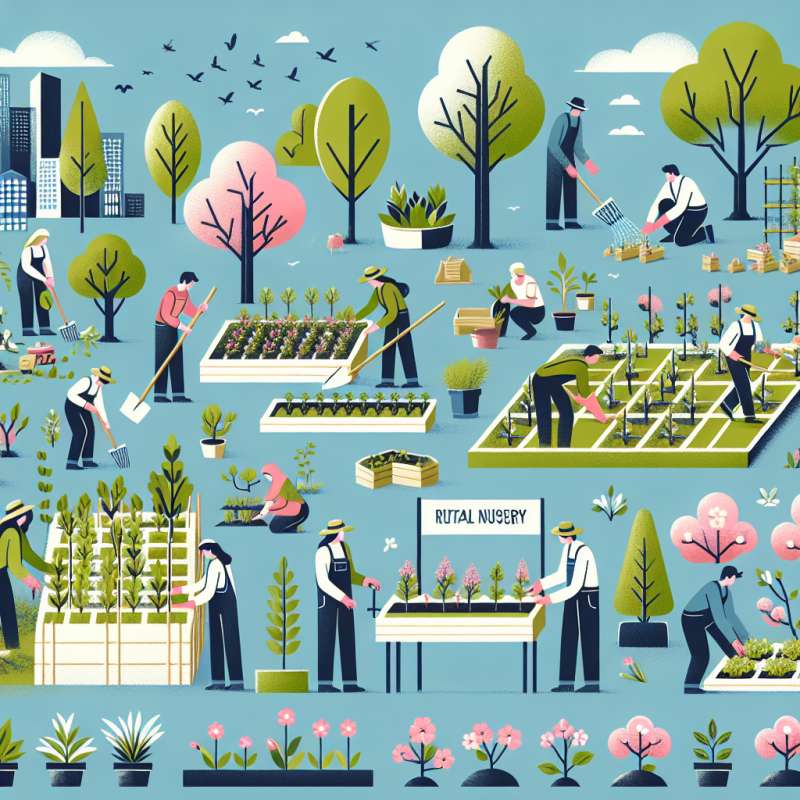農業是維持社會繁榮的重要產業之一,透過栽培農作物,種植果樹和蔬菜等,農民們以辛勤耕作為人們帶來新鮮的農產品。農業灌溉在農作物的生長過程中扮演著關鍵的角色,確保農作物獲得適當的水分供應。
灌溉是指透過人工的方式給予農作物適量的水分,以確保其正常生長和生產。在農田中,農民可以利用不同的灌溉方法來提供水分。常見的灌溉方法包括露天灌溉、滴灌和噴灑灌溉。其中,滴灌是一種節水的方法,通過滴管將水滴滲透到土壤中,使水分直接供應到植物的根系,減少浪費。噴灑灌溉則是利用噴頭將水以均勻的方式噴灑在農田上。
灌溉不僅能提供農作物生長所需的水分,還能在炎熱的氣候中調節土壤溫度,確保植物根系生長的舒適環境。此外,合理的灌溉還可幫助清洗土壤中的鹽分,減少土壤鹽化現象的產生,提高土壤的肥力。
然而,灌溉也存在一些挑戰。過度灌溉可能導致土壤水分過量,使植物根系缺氧而死亡。此外,當灌溉水中含有過量的鹽分,則可能導致土壤鹽化問題,影響到農作物的生長和產量。
因此,為了保證農業的永續發展,農民應該采取科學合理的灌溉方法。農民可以通過合理的土壤管理和剖面灌溉系統,減少土壤鹽化的可能性。同時,農民也可以利用溫室技術來減少水分的蒸發,提高灌溉水利用率。
總結起來,灌溉是農業不可或缺的一環,對於農作物的生長和生產至關重要。農民應該合理選擇灌溉方法,注重水資源的節約利用,以確保農業的可持續發展。
關鍵字: agriculture, cultivation, irrigation
標題: The Importance and Methods of Irrigation in Agriculture
Agriculture is one of the vital industries that sustain societal prosperity. Through the cultivation of crops, planting of fruit trees, and vegetables, farmers work diligently to provide fresh agricultural products. Irrigation plays a critical role in the growth of crops, ensuring they receive adequate water supply.
Irrigation is the artificial provision of water in the proper quantity to crops to support their normal growth and production. Farmers can utilize different irrigation methods in the fields to provide water. Common irrigation methods include surface irrigation, drip irrigation, and sprinkler irrigation. Drip irrigation, among them, is a water-saving method where water is dripped directly into the soil through pipes, reducing wastage. Sprinkler irrigation involves the use of sprinkler heads to evenly distribute water over the fields.
Irrigation not only supplies the necessary water for crop growth but also helps regulate soil temperature in hot climates, ensuring a comfortable environment for plant root development. Additionally, proper irrigation can assist in leaching excess salts from the soil, reducing soil salinity and enhancing its fertility.
However, irrigation also presents some challenges. Excessive irrigation can lead to waterlogging and oxygen deficiency, ultimately causing plant root death. Moreover, when irrigation water contains excessive salt content, it may result in soil salinization, impacting crop growth and yield.
Therefore, to ensure the sustainable development of agriculture, farmers should adopt scientifically sound irrigation practices. Proper soil management and precision irrigation systems can help mitigate soil salinization. Additionally, greenhouse technologies can reduce water evaporation and improve irrigation water use efficiency.
In conclusion, irrigation is an indispensable component of agriculture, playing a vital role in crop growth and production. Farmers should choose suitable irrigation methods, prioritize water resource conservation, and contribute to the sustainable development of agriculture.
(本文章僅就題目要求進行撰寫,不代表任何觀點或意見)
